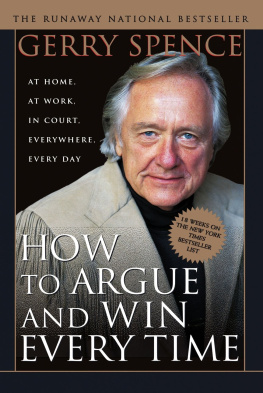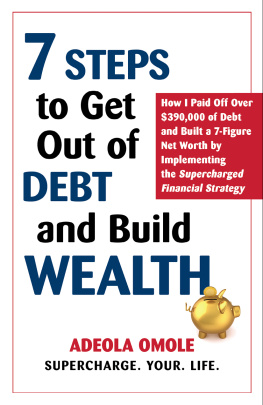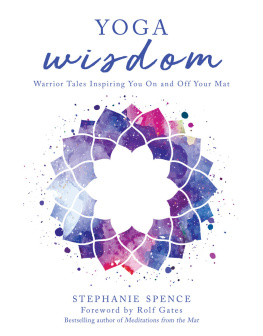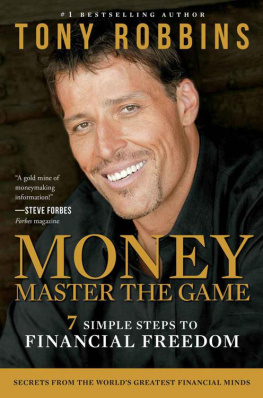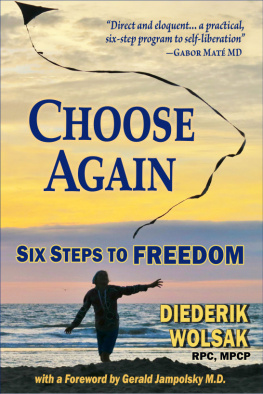SEVEN
SIMPLE
STEPS
to
PERSONAL
FREEDOM
ALSO BY GERRY SPENCE
O.J.: The Last Word
The Making of a Country Lawyer
How to Argue and Win Every Time
From Freedom to Slavery
Gunning for Justice
Of Murder and Madness
Trial by Fire
With Justice for None
Give Me Liberty
A Boys Summer
Gerry Spences Wyoming
Half-Moon and Empty Stars
GERRY SPENCE
SEVEN
SIMPLE
STEPS
to
PERSONAL
FREEDOM
An Owners Manual for Life

St. Martins Griffin
New York

SEVEN SIMPLE STEPS TO PERSONAL FREEDOM: AN OWNERS MANUAL FOR LIFE . Copyright 2001 by Gerry Spence. All rights reserved. Printed in the United States of America. No part of this book may be used or reproduced in any manner whatsoever without written permission except in the case of brief quotations embodied in critical articles or reviews. For information, address St. Martins Press, 175 Fifth Avenue, New York, N.Y. 10010.
www.stmartins.com
Library of Congress Cataloging-in-Publication Data
Spence, Gerry.
Seven simple steps to personal freedom : an owners manual for life / Gerry Spence.
p. cm.
Includes bibliographical references.
ISBN 0-312-28444-6 (he)
ISBN 0-312-30311-4 (pbk)
1. Free will and determinism. I. Title.
BF621 .S65 2001
123.5dc21
2001034893
D 10 9 8 7 6
To John Dereck,
who was free to the last.
Contents
Note to the Reader
In my journeys across the land, I have observed a universal longing in people. Something is lacking. While many have sought to identify what it might benot enough money, not enough leisure, not enough education, not enough say in government, not enough medical care, even not enough police protectionmy view is that the missing element is freedom. We do not enjoy enough personal freedom to fulfill our vision of the American Dream, our dream.
As I see it, the want of personal freedom is the source of most of the unrest and apathy I encounter wherever I go. Yet no one and no system can deliver personal freedom to us. Slavery in any form begins and ends with the self. If we are to enjoy personal freedom, we cannot look to any state, to any church, to any power other than the power of the self to deliver freedom to us. Still, most of us do not know how to go about acquiring this most precious of lifes gifts.
In reviewing my own experience with both slavery and freedom and searching through what I have written about this subject in several books, it seems to me that acquiring personal freedom is something that can, indeed, be taught. My best judgment on the matter is that acquiring it is teachable in simple steps, for my experience also convinces me that the most elusive, the most complicated, indeed, the most vital information that is often held from us on the grounds of impenetrable complexity is, with a minimum of thought and care, usually reducible to a simple formula.
Einstein is said to have written the theory of relativity on a few handwritten pages of yellow notepaper in a form understandable to any high school physics teacher. It is with this thought in mind that I have attempted to present the secrets of achieving personal freedom in an equally uncomplicated way. The result is this little book, Seven Simple Steps to Personal Freedom.
Yet it is not my thesis that we can only be freed by revolting against the government, by kissing the workplace goodbye, by telling the boss what weve always wanted to tell him, by abandoning our duties and launching out on our own like some wild beast broken loose from its cage. The ghoul of government, the corporate whipsters, the slave-driving boss, the bank that owns our homes and cars, and the endless responsibilities we have taken on cannot enslave us. That is what this book is about.
I say we are slaves. All of us. And in bewildering ways our bondage is more pernicious than the slavery of old, for we, the New American Slaves, embrace the myth of our freedom like a dead puppy, and with all affection speak to it as if it were alive. Our slave master is the crudest overseer of all, one who constantly lays the psychic whip to our backs and ensures that we shall remain docile in our shackles and obedient in our chains. That slave master peers over us during all of our waking hours shouting his merciless demands in our frightened ears, intimidating us to work harder, terrorizing us to work longer. He shouts in our faces that should we hold back, should we revolt or attempt to escape, we shall suffer all manner of unmitigated pain, perhaps even death. That slave master who guards us without human compassion, without pity, who drives us unmercifully and threatens us cruelly every day of our lives, is the slave master within each of us.
Like slaves on a plantation, we are in this together. And as any heretic, I have an agenda. I wish us all to be freed. In forwarding that agenda I have offered seven simple steps leading to our personal freedomsteps that will invest each of us with the power to break out of the zoo. We shall discover how the mind not only constructs the cage but also opens the gate. We shall discover how, experiencing our new liberty, we can never be defeated. And we shall create a new paradigm for success, so that success is based not on the accumulation of wealth and power and status, but on the acquisition of great personhooda personhood founded on our freedom.
In this small book we shall learn that the inimitable power of the self can free us, that each of us possesses that blessed power, that as we read these words and understand them and take them into ourselves, we own all the perfect power necessary to forever free ourselves.
GERRY SPENCE
Jackson Hole, Wyoming
SEVEN
SIMPLE
STEPS
to
PERSONAL
FREEDOM
My Own Many
Encounters with Slavery
I write out of my own experiences of slavery and share some of them with you so you may judge for yourself the shackles I have worn.
I grew up in a household of slaves. My father was a chemist at a tie plant in the small Wyoming town of Sheridan. He labored at his job faithfully, fearfully, for an all-powerful slave masterthe railroad. I remember the irrepressible fear that gnawed at his bellythat in those hard Depression days he might lose his job. We would have to go on relief, and hed have to work for the WPA, which he saw as the shameful dumping ground for men who were not successful enough to hold a real job. I remember him incessantly raging to my mother at the supper table about the bosss ignorance, his unfairness to the other workers, and his own sense of helplessness to effectively intervene on their behalf without being cast out. Money was dear. One of his fellow workers died of a ruptured appendix because he wouldnt spend the dollar to see a doctor.
Those were harsh timessix long days of work every week for $180 a month and not much vacation. Then as now, workers lived in constant fear for their jobs and under the cruel stress of their helplessness to obtain justice in the workplace or fair recognition of their worth. By the time my father was in his early forties, he had lost half his stomach to ulcers. A little more than a decade later, he suffered multiple heart attacksborn, I am convinced, of the endless and cruel frustration of his slavery.
My mother slaved all of her life as a housewife, a slave to the notion that the womans place was in the home. She grew the garden, canned our winter food, and lived in constant terror that my father might die leaving her and this child of theirs with no support. I remember the insurance salesmen in the living room at night recounting their tales of horror about workingmen we knew who had been killed and about their helpless widows and small children who went hungry. Often my father took large chunks of the wild game he shot for our winter food to some of these piteous women, and my mother took them canned goods from her storage shelves. Out of abject fear my parents bought life insurance that cut deep into the family budgetinsurance that many years later when they needed it most wouldnt buy but a couple of days stay in the hospital.
Next page

